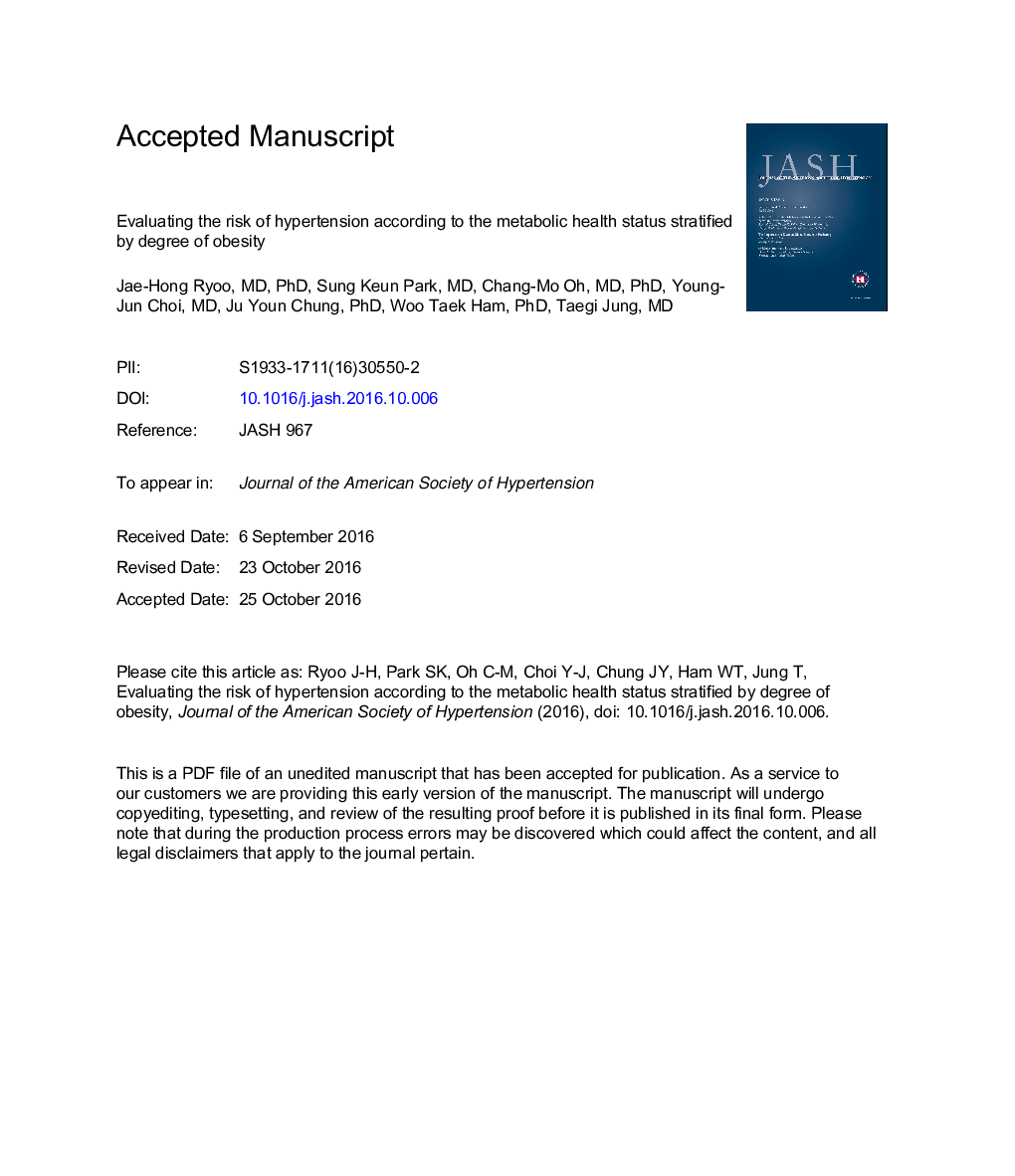| Article ID | Journal | Published Year | Pages | File Type |
|---|---|---|---|---|
| 5613648 | Journal of the American Society of Hypertension | 2017 | 41 Pages |
Abstract
Despite the accumulated evidence showing the significant association between hypertension and obesity, it remains unclear how metabolic healthy status of obesity have an impact on the development of hypertension. Thus, this study was to investigate the risk of hypertension according to the metabolic healthy status stratified by the degree of obesity. A cohort of 25,442 Korean men without hypertension at baseline was followed-up from 2005 to 2010. They were divided into the following 6 phenotypes according to their baseline metabolic health and obesity status: metabolically healthy normal weight (MH-NW), metabolically healthy overweight (MH-OW), metabolically healthy obese (MHO), metabolically unhealthy normal weight (MU-NW), metabolically unhealthy overweight (MU-OW), and metabolically unhealthy obese (MUO). Cox proportional hazard model was used to evaluate the risk for hypertension according to the metabolically healthy status stratified by degree of obesity. During 91,256.4 person-years of follow-up, 4633 participants (18.2%) developed hypertension. The adjusted hazard ratios (95% confidence intervals) for hypertension in MH-OW, MHO, MU-NW, MU-OW, and MUO phenotypes compared with MH-NW phenotype were 1.13 (1.04-1.23), 1.43 (1.15-1.69), 1.17 (1.02-1.34), 1.49 (1.27-1.72), and 1.54 (1.36-1.88), respectively. The interaction between metabolically healthy status and degree of obesity was not significant (P for interaction = .29). Compared with MH-NW, both the obese phenotype and metabolically unhealthy phenotype independently had an increased risk for hypertension. These results imply that both metabolic health status and obesity status play important roles independently in the risk of hypertension in Korean men.
Related Topics
Life Sciences
Neuroscience
Endocrine and Autonomic Systems
Authors
Jae-Hong MD, PhD, Sung Keun MD, Chang-Mo MD, PhD, Young-Jun MD, Ju Youn PhD, Woo Taek PhD, Taegi MD,
